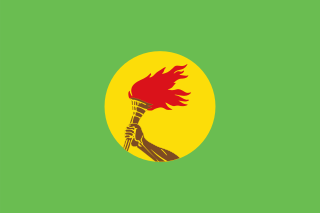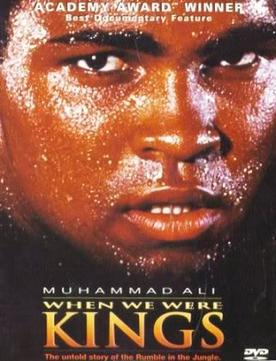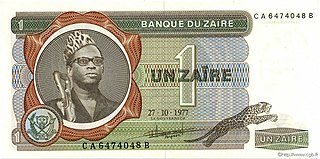| |||||
| Decades: | |||||
|---|---|---|---|---|---|
| See also: | History of Zaire | ||||
The following lists events that happened during 1994 in Zaire .
| |||||
| Decades: | |||||
|---|---|---|---|---|---|
| See also: | History of Zaire | ||||
The following lists events that happened during 1994 in Zaire .
| Date | event |
|---|---|
| Zaire Airlines, Zaire Express, and Congo Airlines are combined to form Hewa Bora Airways, which starts operations in 1994. | |
| MIBA Aviation starts operation as an ad hoc and charter cargo operator based in Mbuji-Mayi. | |
| Sodefor (Société de Développement Forestier) is founded to undertake logging operations in Zaire. | |
| Orchestre Symphonique Kimbanguiste is founded by conductor Armand Diangienda. | |
| During the Great Lakes refugee crisis, the Rwandan genocide causes mostly Hutu refugees to flee from Rwanda to North Kivu, where they form Interahamwe militieas with the local Hutus. Thousands of Tutsis leave Zaire for Rwanda and Uganda at the end of the genocide. [1] | |
| February | Higher Institute of Rural Development (ISDR) opens in Kinzau-Mvuete. |
| 6 July | Léon Kengo wa Dondo is appointed prime minister. |
| 22 July | United States President Bill Clinton announces Operation Support Hope, a military effort to provide immediate relief for the refugees of the Rwandan genocide. |
| 14 September | Stade Kamanyola, later renamed Stade des Martyrs, opens in Kinshasa. |

Zaire, officially the Republic of Zaire, was the name of the Democratic Republic of the Congo from 1965 to 1997. Zaire was located in Central Africa and was, by area, the third-largest country in Africa, and the 11th-largest country in the world. With a population of over 23 million inhabitants, Zaire was the most populous officially Francophone country in Africa, as well as one of the most populous in Africa.

Mobutu Sese Seko Kuku Ngbendu wa za Banga, commonly known as Mobutu Sese Seko or simply just Mobutu, was a Congolese politician and military officer who was the president of Zaire from 1965 to 1997. He also served as Chairman of the Organisation of African Unity from 1967 to 1968. During the Congo Crisis, Mobutu, serving as Chief of Staff of the Army and supported by Belgium and the United States, deposed the democratically elected government of left-wing nationalist Patrice Lumumba in 1960. Mobutu installed a government that arranged for Lumumba's execution in 1961, and continued to lead the country's armed forces until he took power directly in a second coup in 1965.

When We Were Kings is a 1996 American documentary film directed by Leon Gast about the "Rumble in the Jungle" heavyweight championship boxing match that was held on October 30, 1974, in Zaire between world heavyweight champion George Foreman and Muhammad Ali. It features archival footage of celebrities, including James Brown, B.B. King, and promoter Don King, in the lead-up to the fight and accompanying Zaire 74 music festival, alongside interview footage of Norman Mailer, George Plimpton, Spike Lee and Thomas Hauser from the 1990s.

Kniphofia is a genus of perennial flowering plants in the family Asphodelaceae, first described as a genus in 1794. Species are native to Africa. Common names include tritoma, red hot poker, torch lily and poker plant.

The DR Congo national football team, recognised by FIFA as Congo DR, represents the Democratic Republic of the Congo in men's international football and it is controlled by the Congolese Association Football Federation. They are nicknamed Les Léopards, meaning: The Leopards. The team is a member of FIFA and the Confederation of African Football (CAF).

The Alliance of Democratic Forces for the Liberation of Congo-Zaire was a coalition of Rwandan, Ugandan, Burundian, and Congolese dissidents, disgruntled minority groups, and nations that toppled Mobutu Sese Seko and brought Laurent-Désiré Kabila to power in the First Congo War. Although the group was successful in overthrowing Mobutu, the alliance fell apart after Kabila did not agree to be dictated by his foreign backers, Rwanda and Uganda, which marked the beginning of the Second Congo War in 1998.

The First Congo War (1996–1997), also nicknamed Africa's First World War, was a civil war and international military conflict which took place mostly in Zaire, with major spillovers into Sudan and Uganda. The conflict culminated in a foreign invasion that replaced Zairean president Mobutu Sese Seko with the rebel leader Laurent-Désiré Kabila. Kabila's unstable government subsequently came into conflict with his allies, setting the stage for the Second Congo War in 1998–2003.

The zaire was the unit of currency of the Democratic Republic of the Congo and then of the Republic of Zaire from 1967 until 1997. All but six of the 79 series of banknotes issued bear the image of Mobutu Sese Seko. Two distinct currencies existed: zaire, and nouveau zaïre.

The crash of an An-32B occurred on 8 January when an overloaded Zairese Air Africa aircraft, bound for Kahemba Airport, overshot the runway at N'Dolo Airport in Kinshasa, Zaire after failing to take off and ploughed into Kinshasa's Simbazikita street market. Four of the six crew of the aircraft that had been wet leased from Moscow Airways, managed to survive. On the ground, however, there were between 225 and 348 fatalities and about 253 significant injuries. This crash remains the deadliest in African history, and also one with the most ground fatalities of any air disaster in history, superseded only by the intentional crashes of American Airlines Flight 11 and United Airlines Flight 175 in the September 11 attacks.
Zaire 74 was a three-day live music festival that took place on 22 to 24 September 1974 at the Stade du 20 Mai in Kinshasa, Zaire. The concert, conceived by South African trumpeter Hugh Masekela and record producer Stewart Levine, was meant to be a major promotional event for the heavyweight boxing championship match between Muhammad Ali and George Foreman, known as The Rumble in the Jungle. When an injury forced Foreman to postpone the fight by six weeks, the festival's intended audience of international tourists was all but eliminated and Levine had to decide whether or not to cancel the event. The decision was made to move forward, and 80,000 people attended.

United Nations Security Council resolution 1080, adopted unanimously on 15 November 1996, after reaffirming Resolution 1078 (1996) on the situation in the African Great Lakes region, the council, acting under Chapter VII of the United Nations Charter, established a multinational humanitarian force in eastern Zaire.
During the Parade of Nations portion of the 1996 Summer Olympics opening ceremony, athletes from each country participating in the Olympics paraded in the arena, preceded by their flag. The flag was borne by a sportsperson from that country chosen either by the National Olympic Committee or by the athletes themselves to represent their country.

Zaire ebolavirus, more commonly known as Ebola virus, is one of six known species within the genus Ebolavirus. Four of the six known ebolaviruses, including EBOV, cause a severe and often fatal hemorrhagic fever in humans and other mammals, known as Ebola virus disease (EVD). Ebola virus has caused the majority of human deaths from EVD, and was the cause of the 2013–2016 epidemic in western Africa, which resulted in at least 28,646 suspected cases and 11,323 confirmed deaths.
The following lists events that happened during 1996 in Zaire.
Timothy Paul Longman is a professor of political science and international relations at Boston University. A protege of Alison Des Forges, he is recognized as one of the top authorities on the Rwandan genocide and its legacies.
Zaire Franklin is an American football linebacker for the Indianapolis Colts of the National Football League (NFL). He played college football at Syracuse.
The following lists events that happened during 1894 in the Congo Free State.
The following lists events that happened during 1993 in Zaire.
The following lists events that happened during 1995 in Zaire.